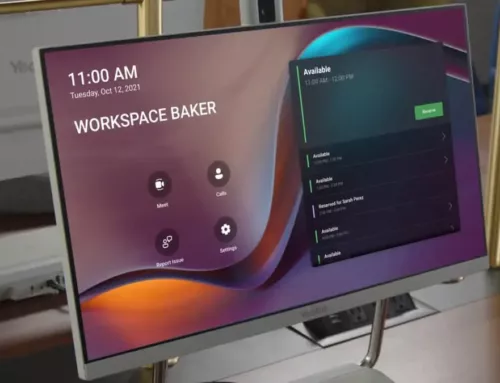During the pandemic, many companies were forced to switch to hybrid work to keep workflows running while maintaining employee safety.
With the pandemic on its way out, companies are now sticking to hybrid work so they can attract and retain talent.
Although some economists would argue against it, the labor market has maintained its strength and seen over a 3% decline in unemployment in recent months. This is a huge reason for businesses to think about and tweak their approaches to the work that needs to be completed.
People like choices about how, when, and where they work. It’s like buying a car: options are appealing! If potential employees want options, then this means they have some power to make these demands from employers.
A company’s success with new work models depends on its ability to develop and execute strategies and tactics that focus on many things. These things could be accessing labor markets, managing compliance issues for engagement cultures, respect, and overall well-being. These areas make it critical for companies to have an HR partner.
Recent data shows that HR still isn’t used as much as it should be inside many organizations, however, change is still possible.
Read on to learn more!

The Reasons for Hybrid Work
A recent study found that over 90% are implementing long-term hybrid work models. These implementations will be occurring within the next 12 months.
The reason for these alternative work models is that businesses are looking to find and retain talented employees. Additionally, nearly 50% of company executives say that they are implementing these hybrid models solely because of the search for talent, claiming their need for a diverse talent pool and talent retention is critical.
Furthermore, 35% of executives claim that employee well-being is at the front of their minds when it comes to the implementation of hybrid work models.

What’s Missing?
With so many companies moving to hybrid work models, what’s holding them back?
Many of the businesses that have already switched to hybrid work models are missing a key factor: getting the right HR involvement.
When it comes to planning and strategizing, only a little over 25% of companies are planning to consult an HR team and around 50% plan to consult board members or leadership members that are a part of the company.
For execution purposes, over 30% of company executives say that responsibility falls on HR teams alone. This disconnect could result in more damage than benefits because of the skewed alignment between strategy and execution. A strategy could ultimately fail or undermine the entire execution process.
Concern over compliance issues is another area where executives lack attention. Only a little more than 10% of executives are thinking about this, however, this is an area where HR teams thrive.
Although it seems like it doesn’t have to be said, when you don’t pay attention to compliance laws and regulations, it can lead to significant legal issues within an organization. These issues can be incredibly costly, and some compliance issues can even sink an entire business.

HR Inside Business Planning
HR teams have been wanting a position in a company’s strategic decision-making so they can offer leadership and guidance related to some of the most important issues a company is facing. As I mentioned before, talent is on the mind of the vast majority of executives, and people issues translate into business issues.
With businesses getting more and more competitive as the years progress, many executives say that if an HR team isn’t already a part of a company’s decision-making, then they’re not likely to find a spot at the meeting table.
In order for HR teams to get an advantage, they should take up strategic roles that are involved with leadership. If they can’t squeeze into a position like this, then the team is better off looking for a different company to work for.
Today, many things fall back on HR. HR teams play a huge role in finding and maintaining talent, creating engaging experiences, establishing new models for work, and studying DEI cultures. All of these areas require trained HR professionals.

Creating Effective Partnerships
Partnerships within an organization are very important. Modern business issues are complex and require all kinds of input from different departments. The more connections that are made, the more the departments will be able to help.
Of course, more connections can make things more complex, so make as many many or as few as your business needs. What this means is to make the right amount of connections that work for your business so you don’t add any unnecessary layers.
You can create effective partnerships by using these approaches:
Ensure a common mission: Each group involved in a strategy has its own goal, but everyone involved will be a strong, shared mission. Make sure that you establish a clear direction so that every group is working towards the same thing. The unique objectives for each group will be broadly understood in all of your partnerships.
Establish Clear Values and Protocols: Big decisions rarely only affect one person or one group. Because of this, you need to be clear about the values that guide decisions and how your choices are prioritized.
It’s easy to say that well-being of employees and cost-effectiveness are both important, but think about which one actually comes first. What values guide the decisions across groups when it’s hard to reconcile both? How will you balance the desire to give employees work choices against the needs of teams and the organization?
These issues will always cause tension, however, establishing clear values will help you make these tough decisions when the time comes.
Communicate, communicate, communicate: When challenges arise, always listen to the point of view of different experts. This can be hard because people want to be right, but creating a work culture where there are trustworthy and strong relationships will benefit the organization and make it easier when people disagree.
You should also make sure that there is enough time for everyone to speak in your meetings. This will enhance everyone’s overall understanding, and implement storytelling so that people will be able to see many sides of an argument.
Set up means for feedback: Quantitative and qualitative data will be collected over time, and you need to make sure there is a way for this to be monitored as your business works through the year. Build systems and listening posts at key points in the process to ensure measures are both department-specific and shared. Openly discuss the outcomes with an emphasis on improvement instead of defending or rationalizing.
You can also ask your employees about what’s not working well. Great leaders know that seeing things in the green at all times doesn’t always mean things are good. Targets could have been set too low, or employees could not be reporting the right things. Seek out things that could be going wrong, and do what you can to make improvements to these areas. Being honest and transparent across all departments will help keep employees accountable.
Create connection points: Scheduling extra meetings can impede productivity, but if groups are connecting on a regular basis, then efficiency can drastically improve by preventing issues or solving issues early on.
Being proactive about communication and being intentional about scheduling connection times will help increase the visibility of any business issues. Having a weekly touch base or daily standup can be really helpful in keeping people in the loop for issues that may be moving faster than usual.

Overall
It’s hard to think of a business problem that doesn’t connect back to talent. As a result, HR involvement is no longer a luxury, but a necessity for all organizations. Start building your partnerships now so that you can tap into different kinds of expertise that will help you connect everyone across the organization.
Complex issues require insight from a bunch of different perspectives. As we’ve discussed, HR teams are critical points of expertise that will help you ensure that you are meeting your objectives as you move forward. As you develop your partnerships, you will receive results that apply to your employees and your organization as a whole.



